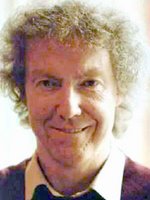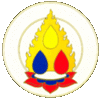Click here to read the full text of some stories from the Karuna Trust's project partners in India, as they work to help some of India's 200 million Dalits and Tribal people effectively and peacefully access their legal entitlements.
Going on
retreat... for three years!
 Vessantara
was ordained into the Western Buddhist Order in 1974, and is well-known as
the author of ‘Meeting
the Buddhas’ as well as a number of other books. He’s led
a long and active life in the Order, travelling and speaking widely – see
for instance his talks on
Free Buddhist Audio for a sample…
Vessantara
was ordained into the Western Buddhist Order in 1974, and is well-known as
the author of ‘Meeting
the Buddhas’ as well as a number of other books. He’s led
a long and active life in the Order, travelling and speaking widely – see
for instance his talks on
Free Buddhist Audio for a sample…
But later this month, he’s off – on a three-year retreat! Most people involved in the FWBO have done at least some retreats – often planned using our website GoingOnRetreat.com – but not many have done one lasting three whole years – and it could be longer. Not surprisingly he’s been asked many questions about it – and here are some of his answers.
FWBO News wishes him, and his partner Vijayamala, all good wishes as they embark on this major adventure.
Vessantara says -
"I'm planning to do a long retreat, starting at the end of June. Here are answers to some of the questions I've often been asked about it:
Where are you going to do your retreat?
"In southern-central France in the Auvergne. It's about 2,000 feet (700 metres) up in the Massif Central. From near where we're staying you can see the range of mountains that includes the Puy de Dome. You can also see the golden roof of the temple of the Karma Kagyu Tibetan Buddhist centre founded by the late Gendun Rinpoche.
Why aren't you doing it at an FWBO place like Guhyaloka or Sudarshanaloka?
"I would be very happy to do so, except for one factor: I really want regular access to someone experienced who can guide my retreat. I have done quite a bit of solitary retreat over the years, as well as living at Vajraloka and Guhyaloka. Whilst they've been very useful, I've come to the conclusion that I would make much better progress with regular access to someone to help me sharpen up my practice, point out my blind spots and bad habits, and generally help me to 'steer to the deep'. So when Lama Lhundrup offered to help Order members who wanted to do long meditation retreat, I decided to take him up on his offer.
Who's Lama Lhundrup?
"He's a German-born senior disciple of Gendun Rinpoche, whom several Order members have got to know through meetings connected with the European Buddhist Union. Last year Subhuti and Dhammarati invited him to give a seminar on Gampopa's Jewel Ornament of Liberation at Madhyamaloka, where I met him. Lama Lhundrup's main work is guiding people in long retreats, so we talked a lot to him about meditation and retreat. Those discussions stirred up the aspiration to do a long retreat that I have felt for many years, but the conditions have never been right.
Why are you doing the retreat with Vijayamala?
"I'd originally thought of doing a long solitary retreat. When I talked to Vijayamala she was okay with that, but said it was something that she would also very much like to do. Lama Lhundrup's experience is that westerners can become too isolated and self-absorbed in solitary retreat, so all their long retreats are in groups. He himself did a three-year retreat with his wife. Then they both took monastic ordination and did further retreats in single-sex groups. (He has done nine years of retreat altogether.) That experience of practising with his wife, which he felt was very effective, means that he is open to helping couples, provided they are mature enough, to practise together.
When will you start your long retreat?
"We'll leave the UK at the end of June, and spend a couple of weeks or so getting settled in. Then we'll find an auspicious date to start. (The 18th of July is Full Moon.)
How long are you planning to do?
"Lama Lhundrup says that in the time-limited three-year group retreats that he guides, people often spend a year getting into it, a year deeply immersed, and then a year anticipating the end of the retreat. So he advised me to leave the finishing date of the retreat open. In that way it becomes just how you are living your life. So I'm telling people that I'm planning to do 'at least three years'.
How will you spend your time?
"On the trial retreat I got up at 5am and did ten or eleven hours' meditation a day in four sessions, as well as a small amount of Dharma study. I also did Hatha Yoga and went running every second day. I imagine my programme for the long retreat will be similar to that for most of the time.
What practices will you be doing?
"I'll carry on with the same practices that I do now. I'll focus mainly on visualization, as well as some formless meditation. On the trial retreat I concentrated on Vajrasattva practice, which felt like a good preparation for a long retreat. I did getting on for 40, 000 mantras. When I lived at Vajraloka in 1980 I did the whole Vajrasattva foundation yoga with 100, 000 mantras. It felt very different this time, less concerned with purifying specific negative karmas, more just with tendencies towards unskilfulness. As the weeks went by I relaxed more and more, and the light-nectar felt less of a purification and more just a blessing.
Will you leave the retreat at all?
"Apart from going for walks or runs in the local area, I don't plan to leave the place at all. As my parents both died in the early 1990s, I'm in the fortunate position of not having any dependents. I have two brothers, but if anything happened to them there are others who can look after them. If one of them died I wouldn't come back for the funeral. I would stay in retreat and dedicate practice for their benefit. I'm most likely to have to go out to see a dentist, as I'm a bit long in the tooth these days and I don't expect they will happily last three years without giving me any trouble.
Are you excited?
"No, I don't feel excited, just deeply contented at the prospect of being able to devote myself to the Dharma undistractedly.
What do you hope to get from it?
"I don't like that question very much. I don't like to anticipate what will happen, and I'm not doing the retreat in order to gain anything. I hope to strengthen the foundations of my practice, to come closer to the Buddhas and Bodhisattvas, and to become more of a resource for other people. Years ago I gave a short talk on 'Solitary Retreat' at Padmaloka as part of a symposium chaired by Bhante. At the end he got up and said "That was a very good talk by Vessantara. There was only one thing that he didn't say, and that is that one goes away on retreat in order to come back." That was a very strong teaching for me. I had given a talk about retreat without setting it in the whole context of the Bodhisattva ideal. These days, thankfully, I am rather more in touch with the Bodhisattva spirit. So I hope that from the retreat I will gain experience of meditation and long retreats that I can come back and share with other interested Order members.
Will you be receiving letters?
"No, sorry. On a retreat as intensive as this correspondence and news of the outside world very easily become a distraction. Lhundrup particularly counselled me against keeping in contact with people for whom I fulfilled a particular role - such as private preceptor or kalyana mitra. In a way the whole purpose of the retreat is to let go of being 'someone', having a particular identity. Correspondence with people in relation to whom I have a particular position can easily interfere with that process.
"Of course I shall be thinking of people I've ordained, and all those to whom I'm KM as well as all my friends in the FWBO. (I currently make a practice of calling to mind in meditation all the men I've ordained and reciting mantras for them.) I won't be reading Shabda, or Sanghajala, or FWBO News, but Maitrivajri has kindly agreed to let me and Vijayamala know if Order members are seriously ill or die, so we can dedicate some practice to them. I will also write to Shabda from time to time, to let people know how I'm getting on.
"My experience of doing solitary retreats is that I feel very close to people - strongly linked to them on a mental level. So I shall be thinking of Bhante and all of you, will be wishing you all well with your lives and Dharma practice. Although there will be nothing obvious to show for it, I shall still be deeply involved in the life of the FWBO".
Vessantara's website is at www.vessantara.net

